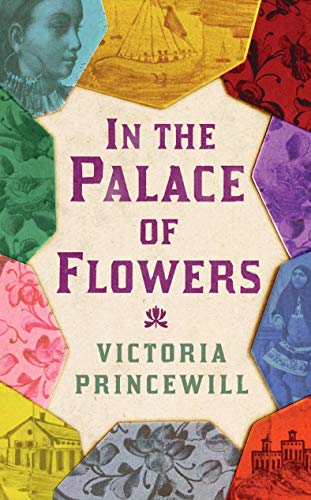In the Palace of Flowers
In Iran in 1895, Jamila, an Abyssinian slave of one of Shah Nasser al-Din Qajar’s numerous wives, lives in the Golestan (flowery) Palace. Nosrat, a prince, likes Jamila as a concubine, but he prefers his young eunuch, Abimelech, another Abyssinian. Although he’s a slave, Abimelech is worldly and wise, and the Shah often confers with him in private. Nosrat takes Abimelech to Council meetings. The Shah permits Abimelech to express his opinions on political matters concerning dealings with the British and the Russians, particularly due to Tsar Alexander III’s recent death. The older princes and senior members of the Council are disturbed by this. Furthermore, because of economic conditions, the presence of a Cossack Brigade in Tehran, and other issues, the citizens are unhappy with the Shah’s regime. The two Abyssinian slaves become engulfed in the struggle for power within the palace, politics, and terrorism by rebellious factions.
Victoria Princewill has based her novel on a brief letter written in 1905 by an Abyssinian woman, Jamila Habashi, in Iran. It’s the only known record written by a slave during that period. Using the real Jamila’s first name for her protagonist, Princewill has injected considerable realism into the story in imagining what Jamila would have experienced. While providing readers with vivid details of the exquisite Persian palace and the Shah’s opulent court, Princewill doesn’t hold back while narrating the lavish life within, including heterosexual and gay intimacies. Jamila desires more than freedom. She is tortured for her treachery, which is also recounted in detail; some readers might want to skip those passages. As this is Jamila’s story, the historical aspects, such as the British-Russian Great Game, are appropriately light. The novel’s theme is stated at the beginning in Jamila’s thoughts: “We shall be forgotten.” Princewill has masterfully brought to light the real Jamila, lest she is forgotten. Highly recommended.










